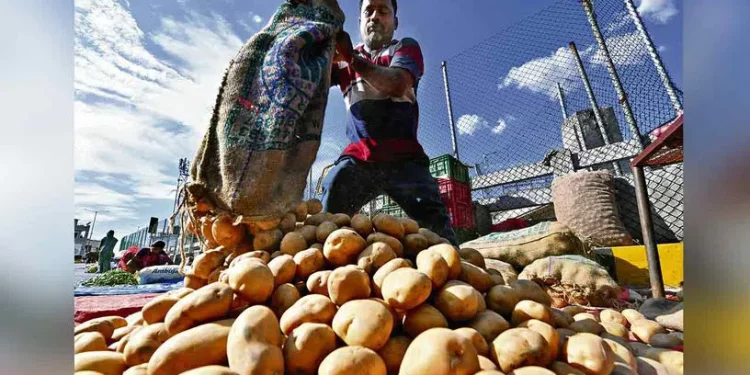#TelanganaFarming #PotatoProduction #ARCTechnology #SeedProcurement #SustainableAgriculture #FarmersEmpowerment #HorticultureDepartment #CropSeasons #RuralDevelopment #FoodSecurity
Telangana, a state in India, is aiming to enhance potato production to meet the rising demand in the market. However, the availability and procurement of quality potato seeds have posed significant challenges for farmers, resulting in high transportation costs and increased production expenses. To address this issue, the Telangana Horticulture Department is planning to adopt Apical rooted Cutting (ARC) seed technology, which promises to produce superior quality seeds at an affordable cost. This article delves into the government’s initiative and its potential impact on potato cultivation in the state.
Addressing the Seed Procurement Challenge:
Currently, Telangana procures potato seeds from the Central Potato Research Institute (CPRI) in Shimla, as well as traders in Agra, Uttar Pradesh, and Himachal Pradesh. This reliance on other states not only incurs substantial transportation costs but also contributes to 40-50% of the total production expenditure. To overcome these challenges, the Horticulture Department is exploring the implementation of ARC seed technology.
The Adoption of ARC Seed Technology:
A team of 15 members, including progressive farmers, was sent on a study tour to the International Potato Centre (CIP) and the University of Horticultural Sciences (UHS) in Bengaluru. Their visit to various nurseries, tissue culture labs, and fields enabled them to develop an action plan for promoting ARC technology in Telangana. Under this plan, seeds produced via ARC will be procured from CIP or other nurseries in Bengaluru and distributed to farmers free of cost during the Vanakalam (Kharif) season. The resulting tubers will then be used as seeds for the Rabi crop season.
Establishing ARC Mother Beds and Distribution:
To facilitate the adoption of ARC technology, mother beds for potato ARC are being prepared at the Centre of Excellence (COE) in Jeedimetla and Mulugu. The plants produced from these mother beds will be distributed among farmers in Sangareddy, Vikarabad, and Siddipet during the Rabi crop season, with the support of subsidies provided by the Horticulture Department. This initiative aims to assess the performance of ARC technology on a commercial scale and its viability for long-term implementation.
Conclusion and Future Outlook:
The Telangana Government’s plan to increase potato production through the adoption of ARC seed technology holds significant promise for the state’s farmers. By producing high-quality seeds locally, the reliance on seeds from other states can be reduced, minimizing transportation costs and enhancing affordability. The successful implementation of this initiative during the Kharif and Rabi crop seasons will serve as a foundation for further expansion and promotion of ARC technology in Telangana. By fostering sustainable potato cultivation practices, the government aims to empower farmers and meet the increasing demand for this essential vegetable staple.







